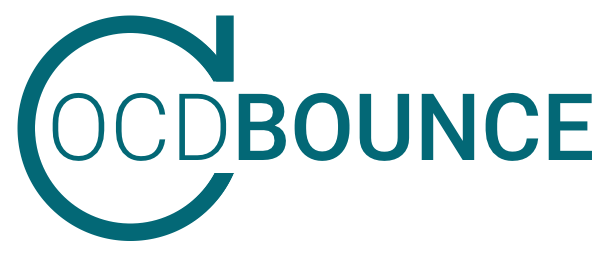Resources
Online Treatment
There are four online courses based for Australian residents that have been developed by researchers and clinicians. These offer no-cost or low-cost options for people who are motivated to fully engage with the materials and complete all the exercises. Online courses are not suitable for everyone, but may be a good first step or addition to therapy.
OCD? Not me! is designed for young people in Australia aged 12 to 18 years old who are living with OCD. It is designed to be completed over eight weeks, includes tips for parents, and can also be combined with treatment with your therapist.
The This Way Up OCD Course is a six-module online course that presents the principles of OCD treatment for adults in Australia in an easy-to-read form, including illustrations. Your GP or mental health clinician can give you access to the course for free and support your progress. Alternatively, you can complete the course on your own for a small fee.
The Mindspot OCD Course is a eight-week online treatment course designed for Australian adults who are living with OCD. It includes optional weekly support from a Mindspot clinician to support progress through the course.
OCD Stop is a 12-module online treatment course also designed for adults in Australia living with OCD. It includes optional weekly therapist support by email for up to 12 weeks, in addition to up to four telehealth sessions.
Useful links
OCD-UK - Useful information about living with OCD, its treatment, and resources for loved ones.
International OCD Foundation - Additional information about OCD, its treatment, and relevant resources.
SO-OCD - An educational resource made by two Australians who live with OCD.
Treatment Guidelines for Mental Health Professionals
There are specific guidelines to help you provide effective therapy and medication management for OCD.
These guidelines are based on the best available evidence and drafted by several experts in this field. As a mental health clinician, these guidelines can help you ensure that the service you provide follows best-practice.
Although the guidelines are developed in Canada and the UK, they suffice for practice in Australia and should be applied with respect to your clinical context and client's needs.
The Canadian Clinical Practice Guidelines offer advice for cognitive-behavioural and pharmacological interventions based on a thorough review of the evidence. Although the guidelines also cover anxiety and PTSD, there is advice specific to OCD. It includes are specific recommendations for prescribing medications for OCD. It also includes specific recommendations for therapists, including common techniques they recommend (and do not recommend) for OCD.
The UK’s NICE Guidelines include recommendations for treating OCD and body dysmorphic disorder, in addition to guidance for carers. The guidelines offers specific recommendations for treatment depending on the functional impact of OCD symptoms for the person seeking treatment. In addition, the advice assists with decision-making regarding choice of medication, intensity of psychological therapy, and further options when first-line approaches are not effective.
Do you need to refresh or upgrade your skills for Exposure and Response Prevention?
You can do online training in treating OCD through the IOCDF, or for child and youth OCD see the OCD Busters program (below).
There are also professional workshops by Australian clinicians and trainers such as Dr Gayle Maloney (Perth OCD Clinic), Dr Amy Talbot (The Talbot Centre) or Dr Celin Gelgec (Melbourne Wellbeing Group). An upcoming workshop with 5 follow-up supervision sessions in advanced practice is offered by Prof Jessica Grisham and Dr Danielle Einstein (more information below).
You can also seek supervision from a clinician in our directory who offers supervision. Members of the Australian Psychological Society may also access an Exposure and Response Prevention practice guide.
Training and Supervision for Specialised CBT-ERP for Child and Youth OCD
OCD BUSTERS refers to a suite of evidence-based treatment programs for children, young people and their families with OCD, developed by Professor Lara Farrell and her colleagues at the Griffith Centre for Mental Health. OCD BOUNCE has been instrumental in leading implementation of evidence-based CBT-ERP (OCD BUSTERS group and intensive treatment) within Australian mental health services to improve access to high-quality, evidence-based care.
OCD BUSTERS is a family-based, cognitive-behavioural treatment, with a focus on Exposure and Response Prevention (CBT-ERP). OCD BUSTERS modalities include:
Group CBT-ERP
Intensive CBT-ERP
Multi-technology Parent Training in CBT-ERP
For training and supervision in CBT-ERP for children, young people and their families, and access to OCD BUSTERS resources, please visit the OCD BUSTERS website.
Training and Supervision in Advanced Behavioural and Cognitive Strategies for Treatment of OCD in adolescents and adults
Are you treating OCD? Would you like to improve your skills and understand how to recognise obstacles and respond to them? In 2024, Professor Jessica Grisham and Dr Danielle Einstein will be offering a two-part advanced online workshop on advanced behavioural and cognitive strategies for the treatment of OCD in adolescents and adults, followed by 5 scheduled online group supervision sessions. This is open to AHPRA registered psychologists and psychiatrists. It will cover fine-tuning and applying innovative treatment approaches to OCD in order to optimise engagement and overcome therapeutic obstacles, as well as some support throughout the year in thinking through clinical challenges.
As an advanced workshop, there will be an initial review of the basics, but the workshop will quickly progress to more advanced skills. The program aims to be pragmatic and raise the level of therapeutic expertise in applying advanced skills. Attendees must have background training in cognitive behavioural principles and be currently working with OCD clients. Please note knowledge of basic OCD assessment and CBT treatment are pre-requisites. The two-part workshop will be followed by a series of 5 scheduled group supervision sessions to consolidate your skills and support you in applying them with your own clients.
Find out more and register here.


